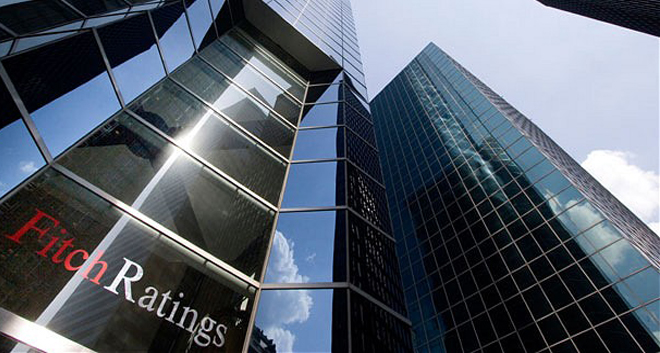Following recent developments in the island’s implementation of its economic adjustment programme, international credit rating agency Fitch has affirmed that Cyprus is no longer assumed to require its entire €10 billion bail-out international aid.
The comments came in the context of the agency’s latest affirmation of Cyprus’ long-term foreign and local currency Issuer Default Ratings (IDRs) at ‘B-‘ with a positive outlook. The issue ratings on Cyprus’s senior unsecured foreign and local currency bonds were also affirmed at ‘B-‘.
The Country Ceiling, meanwhile, was raised to ‘BB-‘ from ‘B’ and the short-term foreign currency IDR was been affirmed at ‘B’.
“The general government debt to GDP ratio is expected to peak at just over 110% in 2015 and 2016 and will ease to around 90.7% by 2022,” Fitch explained in its report. The strong budget performance, it continued, implies the buffers in the programme have grown close to EUR3bn (17% of GDP). The underlying trend for public finances, meanwhile, has been positive.
The fiscal deficit in 2014 was 0.2% of GDP (8.8% of GDP including the one-off capital injections to the co-operative sector) compared with Fitch’s forecast of 3.3% in October. “The over-performance reflects a combination of higher tax revenues and lower than expected expenditure across most items,” the report noted, adding that Fitch expects the fiscal deficits to average 0.8% from 2015 to 2018″.
Despite these positive developments, the agency cautioned that risks to EU-IMF programme implementation remain elevated, stressing that there is a significant risk that privatization plans required under the programme will not be fully implemented, leading to further delays to programme reviews.
Fitch also noted that non-performing loans (NPLs) in the banking sector reached an “exceptionally high” 50%.
The removal of the remaining capital controls in April has led to the Country Ceiling being raised by three notches to ‘BB-‘.
Fitch said Cyprus is among the most vulnerable eurozone sovereign to a disorderly Greek exit, as a country still in the midst of a post-crisis adjustment. Direct linkages between the two economies have been reduced in recent years and are not large, however, the impact on depositor and investor confidence is harder to gauge, it said.
It added that economic conditions in Cyprus remain challenging and the output is projected to decline by 0.8% in 2015, the fourth consecutive year of contraction.
“The passing of the insolvency law through parliament on 18 April should trigger the activation of the foreclosure law and pave the way for further official funding. The law should strengthen the foreclosure framework and address the high banking NPL problem,” Fitch expressed.
Finally, Fitch assumed that there will be no material escalation in developments between Russia and Ukraine that would lead to a significant external shock to the Cypriot economy, noting that tourism from Russia has been rising and Russians account for a sizeable share of foreign deposits in banks.
